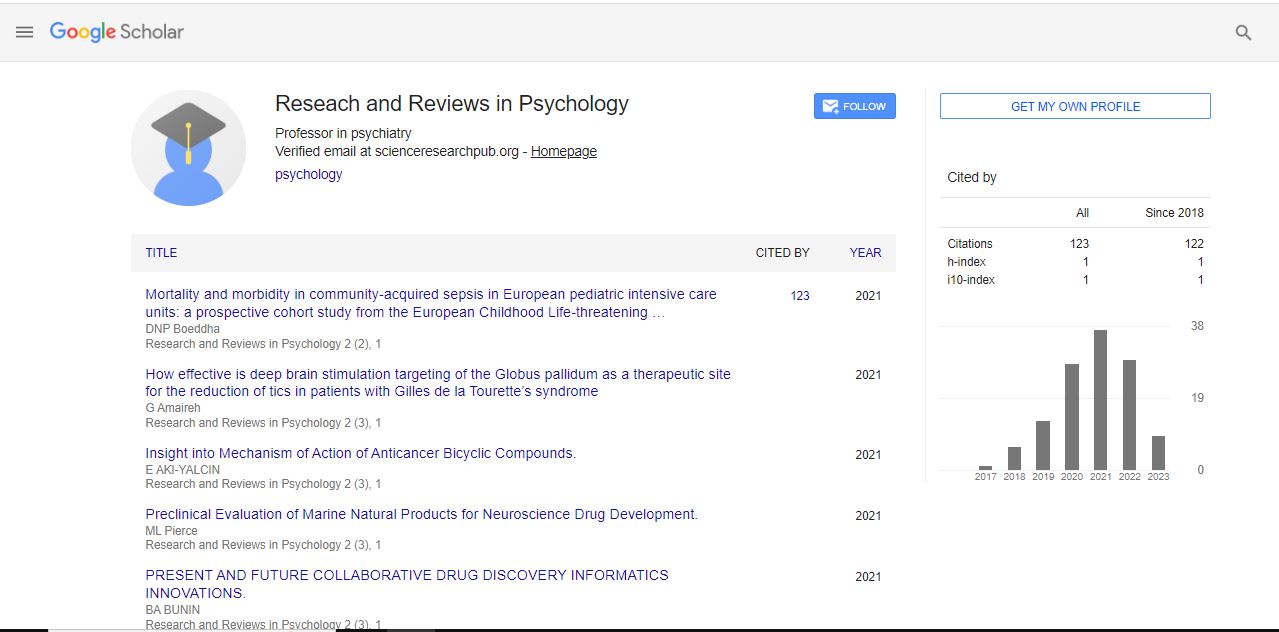Short Communication, Rrpy Vol: 0 Issue: 0
A Place At The Table. How Neuroscience Came To The Rescue Of Talking Therapy
Helen Brice
MA Existential Psychotherapy & Counselling Existential Psychotherapist, United Kingdom
Abstract
In recent years in the UK, the treatment for mental illness became a combination of 3 elements: psychiatry, medication and Cognitive Behaviour Therapy. Traditional talking therapies were deemed less suitable, because they took too long and didn’t “cure” people. Short term, CBT treatment looked as if it were the “new thing”. Then came neuroscience. Neuroscience brought a resource that therapists can use: it told us that the brain and the nervous system are intrinsically relational; that we have one brain and one nervous system. Neuroscience gave psychotherapists the limbic system, polyvagal theory, limbic revision, and the importance of biotemperament. Traditional talking therapists, and those who are concerned with matters of the mind and bodymemory have consistently and repeatedly maintained that reciprocal relationships – or just one is absolutely fundamental for our wellbeing. Neuroscience gave us something that we could “use” – tools, skills – with which psychotherapists could agitate the sediment in which our clients had become stuck. I will attempt to show how two apparently opposing worlds of psychotherapy and neuroscience came together, and how exciting this is for traditional talking therapy. You will hear real clients’ stories and how I worked with them across five distinct settings including private hospital, private practice and prison. I will explain how I use two completely different modalities of training – Existential Psychotherapy (which challenges the medical model) and Dialectical Behaviour Therapy (which was born out of neuroscience); and how neuroscience gave us something we could use to treat the untreatables.
Keywords: Psychiatry, Psychology
Biography:
Helen Brice has a busy private practice in London. She is a highly experienced psychotherapist for individuals and couples, with a specialist interest in Personality Disorders, particularly BPD/ EUPD, and with clients who are emotionally over-controlled with personalities that are avoidant, obsessivecompulsive, paranoid and also chronically depressed or have anorexia nervosa. Helen’s referrals come from psychiatrists, the Maudsley Hospital and, since her pioneering Stimmung Therapy Programme for musicians and actors, the British Association Of Performance Arts Medicine and the Equity Charitable Trust. She spoke at the World Music Conference 2020, and at the Society For Existential Analysis Conference in 2018
References
• Partridge, Helen & Thorpe, Clare & Edwards, Sylvia & Hallam, Gillian. (2007). The practitioner’s experience and conception of evidence based library and information practice: an exploratory analysis.
• Rosini, E. & Pucci, D. & Calabró, G. & Girardi, P.. (2015). MISM: Clinical and epidemiological data of a new Italian Public Mental Health Care Model in development. 21. 239-245.
• Ruffin, T.. (2015). Health Information Technology and Change. 10.4018/978-1-4666-9494-1.ch012.
• Cruz, P.L.O. & Prudente, E.S. & Lapitan, Marie Carmela. (2015). Benchmarking anesthesia-controlled times at a tertiary general hospital in the philippines. Acta Medica Philippina. 49. 62-68.
 Spanish
Spanish  Chinese
Chinese  Russian
Russian  German
German  French
French  Japanese
Japanese  Portuguese
Portuguese  Hindi
Hindi 